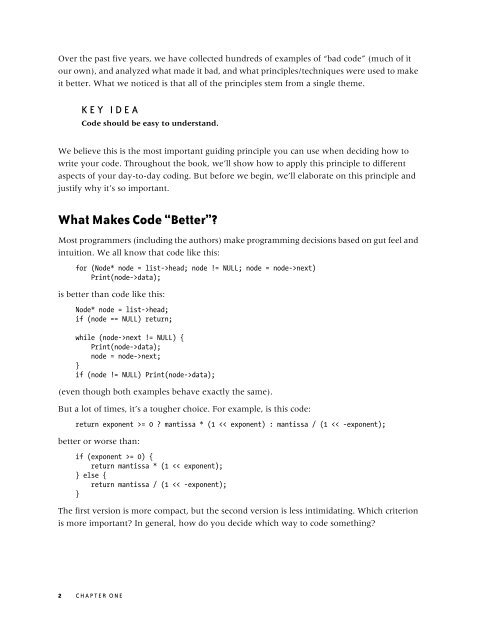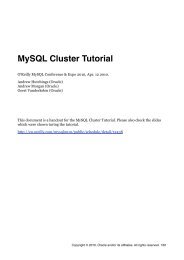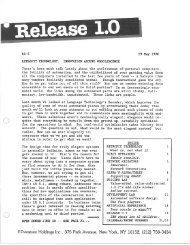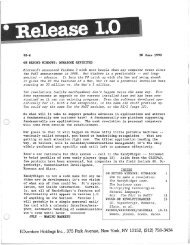The Art of Readable Code - Cdn.oreilly.com
The Art of Readable Code - Cdn.oreilly.com
The Art of Readable Code - Cdn.oreilly.com
Create successful ePaper yourself
Turn your PDF publications into a flip-book with our unique Google optimized e-Paper software.
Over the past five years, we have collected hundreds <strong>of</strong> examples <strong>of</strong> “bad code” (much <strong>of</strong> it<br />
our own), and analyzed what made it bad, and what principles/techniques were used to make<br />
it better. What we noticed is that all <strong>of</strong> the principles stem from a single theme.<br />
K E Y I D E A<br />
<strong>Code</strong> should be easy to understand.<br />
We believe this is the most important guiding principle you can use when deciding how to<br />
write your code. Throughout the book, we’ll show how to apply this principle to different<br />
aspects <strong>of</strong> your day-to-day coding. But before we begin, we’ll elaborate on this principle and<br />
justify why it’s so important.<br />
What Makes <strong>Code</strong> “Better”?<br />
Most programmers (including the authors) make programming decisions based on gut feel and<br />
intuition. We all know that code like this:<br />
for (Node* node = list->head; node != NULL; node = node->next)<br />
Print(node->data);<br />
is better than code like this:<br />
Node* node = list->head;<br />
if (node == NULL) return;<br />
while (node->next != NULL) {<br />
Print(node->data);<br />
node = node->next;<br />
}<br />
if (node != NULL) Print(node->data);<br />
(even though both examples behave exactly the same).<br />
But a lot <strong>of</strong> times, it’s a tougher choice. For example, is this code:<br />
return exponent >= 0 ? mantissa * (1

















